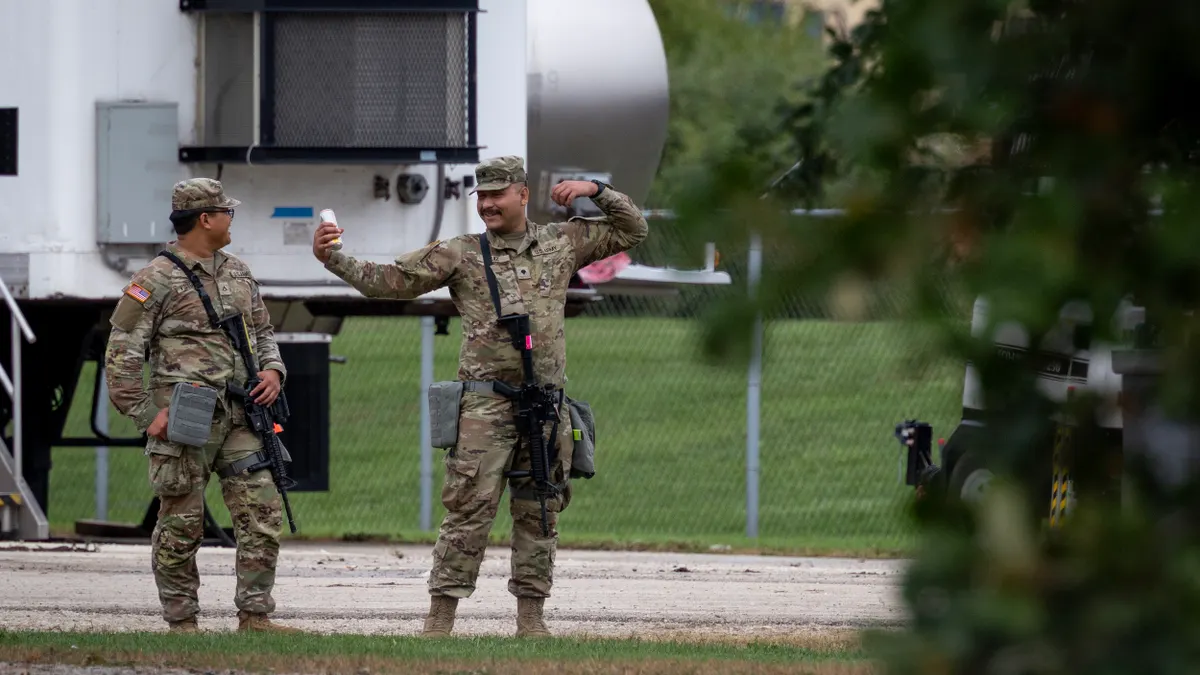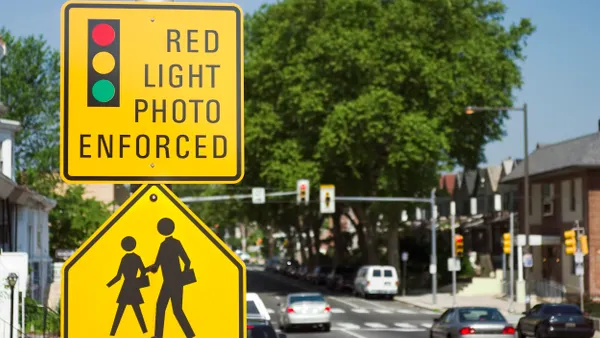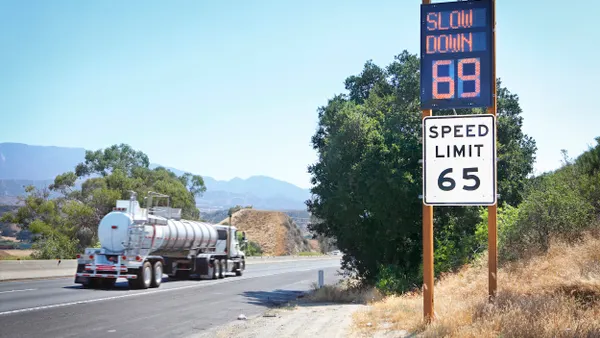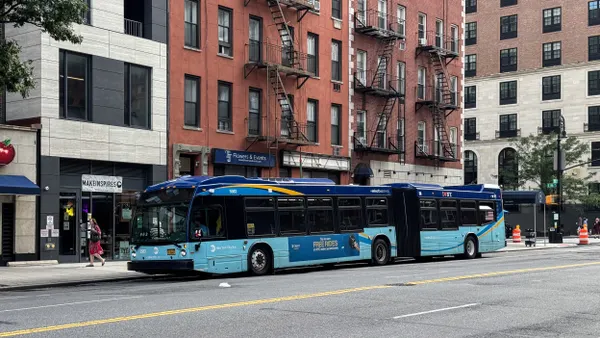Dive Brief:
- Last-mile delivery services in New York City are tied to increased crashes, traffic and workplace injuries, as well as more air pollution in predominantly Black and Hispanic neighborhoods, according to a report City Comptroller Brad Lander released Monday.
- The report blames a fragmented regulatory environment and corporate subcontracting, which allows major companies to avoid liability for violations of labor and safety standards.
- “The convenience of next-day package delivery has a material cost for New Yorkers,” Lander said in a statement.
Dive Insight:
Almost 90% of goods are delivered by truck in New York City, and freight volumes are expected to grow 70% over the next two decades. Daily package deliveries in New York City rose to 2.5 million in 2024 from over 1.8 million before the COVID-19 pandemic, the report states.
The report examined data on crashes near 18 large warehouse and distribution facilities that opened in the city from 2017 to 2022. It found traffic collisions increased within a half-mile of the facilities at 14 of the 18 sites, with crashes increasing an average of 16% across all the areas studied. Truck-injury crashes rose by 137%. Crashes near two large FedEx and Amazon warehouses in Queens rose by 53% and 48%, respectively, according to the report.
More than two-thirds of these warehouses are in environmental justice areas where Black and Hispanic residents constitute nearly 66% of the population, according to the report. “The concentration of last mile facilities in these neighborhoods points to the need for regulations to mitigate the traffic and environmental burdens they pose,” the report states.
The report also found that workplace injury rates at these last-mile facilities are more than triple the national average for all private employers.
Comptroller Lander’s report makes six recommendations to address these issues.
- Finalize a proposed zoning change that would establish a city planning commission special permit for new last-mile facilities. The permitting process would require a public review.
- Pass Local Law 1396 to require licensing of last-mile facilities, establish labor standards and liability for facility operators by requiring direct employment.
- Enact Local Law 1130 to regulate certain large warehouse operators to reduce truck emissions and increase incentives for electrifying freight delivery vehicles.
- Establish a new entity to oversee regulation of the delivery industry and integrate zoning, labor and environmental requirements.
- Upscale the city’s freight management and clean trucks programs, including further support of commercial cargo bikes, neighborhood loading zones and “smart curbs.”
- Pass a law that establishes labor standards to mitigate occupational injuries among last-mile delivery workers, including by requiring that certain delivery workers be classified as employees instead of contractors.
“There are still several meetings in which it's possible for the city council to move on some really critical legislation that can make a difference on these issues,” Landers said at the press conference, where he was joined by elected officials, workers' rights advocates, street safety advocates and environmental justice organizers.













